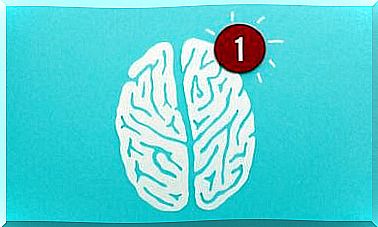Intimacy In Relationships – Trust And Reciprocity

Intimacy in relationships, whether it is a romantic relationship or friendship, largely defines who you really are and what you really feel. Reciprocity is about getting back what you put in. Unfortunately, there is some emptiness and superficiality in this world that we share with emotion robbers and sensors.
You recognize an emotional looter by the fact that this has nothing to offer when the lights go out, not to anyone. However, emotional donors have roots that germinate and flourish in their bodies with memories that constantly reach them and give them eternal life.
The important thing is that those who seek empty relationships do not drain others. And there are still people who believe in giving, because intimacy is possible only when there is reciprocity. This is because they have understood that this is the only thing left in the end.

Intimacy in relationships is about reciprocity
We have all been told that we must respect ourselves in order to be loved. Do not give too much and keep some cards under the table, they say; give of yourself in smaller pieces. But this means that many people will die as relatively respectable individuals, without knowing what love is all about.
What this means is that there are no such rules when it comes to love. It’s not something you can program. It’s not always fair. The quality of justice does not apply to love (or rather to the art of loving). As you can see, there will always be imbalances, and this is normal.
Furthermore, greed is the opposite of love. A person can greedily feed on others and plunder and manipulate them. These types of people know exactly what they want and they suck the energy and life of others for their own personal gain. Greedy people wonder “what can I get from others?” while people who give love ask themselves “how can I give more to others?”
Intimacy in reciprocity is about being vulnerable
Most people get married and hope to share a life with someone else. The sad truth is that 40-50% of these marriages end in divorce.
In addition, stable marriages are not necessarily happier. In other words, people remain in unsatisfactory relationships for many reasons (children, finances and religion). The question is thus not only about stability but also about quality. There are many emotional robbers out there and people refer to them as “my dear partner”.

How to build intimacy in relationships
Each type of relationship needs various nutrients in specific amounts. It usually depends on those who form them but also on the circumstances and the relationship. The following are some things you can do to strengthen the intimacy of your relationship.
- Kindness is important in all types of relationships and reciprocity adds value to kindness. Discomfort weakens relationships.
- Work on your relationship and do your best. New research supports the idea that people who actively work with their relationships contribute to creating happy and long-lasting relationships (Ogolsky & Bowers, 2013).
- The types of behaviors that create reliable success relationships include expressing positive emotions, being open, giving tenderness ratings, using individual support circles, and support points in one’s own relationship. Also share the implicit responsibility with your partner to avoid conflict in a relationship that lasts over time.
- If it’s not important, drop it. In a new study, researchers asked a sample of divorced individuals why their marriage failed. Participants frequently cited quarrels as a major contributor, second only to infidelity (Scott, Rhoades, Stanley, Allen, & Markman, 2013). In fact, they described that an argument, initially unimportant, could lead to the beginning of a breakup.
- Show your love. Research shows that sincere and meaningful compliments can have a surprisingly strong impact on satisfaction in a relationship (Marigold, Holmes, & Ross, 2007).
- Re-create the commitment for each other every day. The emotional components of passion and intimacy are often the first things we think of when we think of love. Commitment, however, is in fact the main basis for satisfaction in relationships, especially in long-term relationships (Acker and Davis, 1992).
Final notes
Romantic relationships are dyadic interactions, and as such they are constantly changing and complex. There are recipes for successful marriages, but according to research, the most important ingredients are the will and the ability to create it.









